Academic Editors
The following people constitute the Editorial Board of Academic Editors for PeerJ. These active academics are the Editors who seek peer reviewers, evaluate their responses, and make editorial decisions on each submission to the journal. Learn more about becoming an Editor.
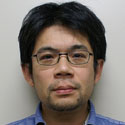
Katsuhiko Shirahige
Professor, Laboratory of Genome Structure and Function, Institute of Molecular and Cellular Biosciences, The University of Tokyo.
Director of Research Center for Epigenetic Disease, The University of Tokyo
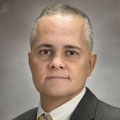
Jair C. Soares
Dr. Soares obtained his M.D. in 1990 from the University of Sao Paulo School of Medicine, Brazil. He completed his psychiatric training at the University of Pittsburgh Medical Center, followed by a postdoctoral fellowship in neuroimaging research at the department of Psychiatry at Yale University School of Medicine. He has extensive clinical research experience on brain imaging, neurocognitive methods and clinical trials primarily in the field of mood disorders.
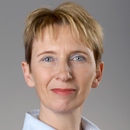
Judith Klumperman
Professor of Cell Biology, Chair of the Cell Biology Department University Medical Center (UMC) Utrecht, Head of the Cell Microscopy Center (CMC) of the UMC Utrecht.
Editorial boards of: Traffic, Histochemistry and Cell Biology, Biology of the Cell, Molecul
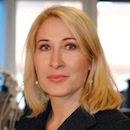
Sabine Bahn
Director of the Cambridge Centre for Neuropsychiatric Research at Cambridge University. Practising clinician (with an Honorary Consultant position in General Adult Psychiatry at Addenbrookes Hospital, Cambridge). Co-founder of Psynova Neurotech Ltd. Professor for Tranlational Neuroscience at Erasmus University Medical Centre, Department of Neuroscience, Rotterdam.
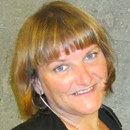
Monika Stoll
Professor of Genetic Epidemiology at the Medical Faculty and Director of the Leibniz-Institute for Arteriosclerosis Research at the University of Muenster, Germany. Former Associate Editor of Physiological Genomics, Academic Editor of PLoS ONE. Main research interests: Genetics of complex disease traits, in particular cardiovascular and inflammatory diseases; comparative genomics, evolutionary medicine.

Simon Baron-Cohen
Simon Baron-Cohen is Professor of Developmental Psychopathology, University of Cambridge and Fellow at Trinity College, Cambridge. He is Director, Autism Research Centre (ARC) in Cambridge. He has a degree in Human Sciences from New College, Oxford, a PhD in Psychology from UCL, and an M.Phil in Clinical Psychology at the Institute of Psychiatry, Kings College, London, and he held lectureships in these departments. He is author of Mindblindness, The Essential Difference, Prenatal Testosterone in Mind, and Zero Degrees of Empathy. He has edited scholarly anthologies including Understanding Other Minds, Synaesthesia, and The Maladapted Mind. He has written books for parents and teachers including Autism and Asperger Syndrome: The Facts, and Teaching Children with Autism to Mindread. He has celebrated autism in An Exact Mind. He is author of the DVDs Mind Reading and The Transporters, to help children with autism learn emotion recognition, both nominated for BAFTA awards. He is author of >450 scientific articles. He has supervised 32 PhD students.

Anthony A. Grace
Distinguished Professor of Neuroscience; Professor of Psychiatry and Psychology at the University of Pittsburgh. Involved in translational research related to the dopamine system and psychiatric disorders. Past council member of ACNP, NARSAD Distinguished Investigator, Paul Janseen Schizophrenia Research Award, Efron Award, NIMH MERIT Award, Lilly Basic Scientist Award, Elected Fellow of AAAS.
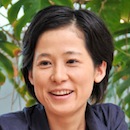
Keiko Sugimoto
Group leader at RIKEN Plant Science Center. Editorial Board Member of Cell Reports, The Plant Cell, Genes to Cells, Plant and Cell Physiology, and Frontiers in Plant Science

L. LaReesa Wolfenbarger
Dr. Wolfenbarger conducts research on the ecology and conservation of grassland species and communities in the agricultural landscape of the Great Plains. She also devotes research time to synthesizing information for policymakers and resource managers so that scientific results are readily available for decision makers.
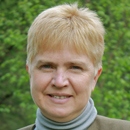
Ludmilla A Morozova-Roche
Professor of Medical Biophysics, Department of Medical Biochemistry and Biophysics, Umea University, Sweden. Editor of journal "Diseases".
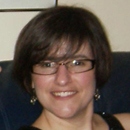
Karen L. Mossman
Professor of Pathology and Molecular Medicine and member of the Institute of Infectious Disease Research and McMaster Immunology Research Centre at McMaster University. Associate Editor of PLOS Pathogens and PLOS ONE and Editorial Board Member of Journal of Virology. Recipient of the 2006 Christina Fleischmann Award from the International Society for Interferon and Cytokine Research.
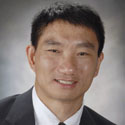
Shou-Jiang (SJ) Gao
Dr. Gao is a Professor and Director of the Cancer Virology Program at the Hillman Cancer Center and in the Department of Microbiology and Molecular Genetics in the University of Pittsburgh School of Medicine.
Dr. Gao is an Elected Fellow of the American Academy of Microbiology. He currently serves as the Editor-In-Chief for the Journal of Medical Virology, Section Editor for PLoS Pathogens, and Academic Editor for PLoS One and PeerJ. He is also serving on the Editorial Boards of over 10 peer-reviewed journals including Journal of Virology, Journal of Antivirals & Antiretrovirals, Journal of Molecular Biomarkers and Diagnosis, Journal of Microbial & Biochemical Technology, Sarcoma Research International, Oncolytic Virotherapy, etc.

